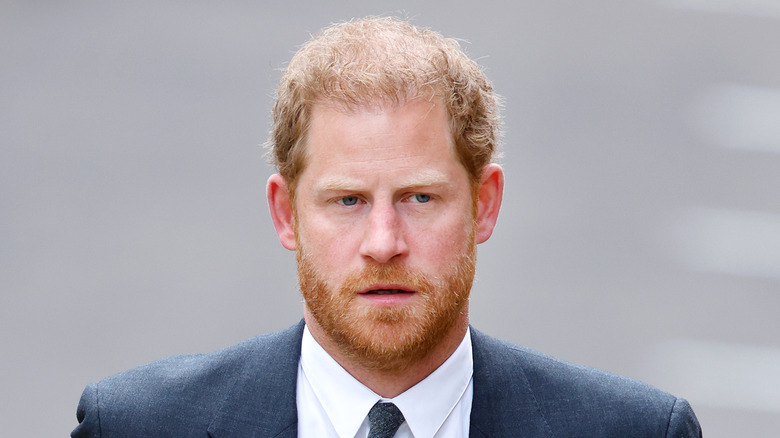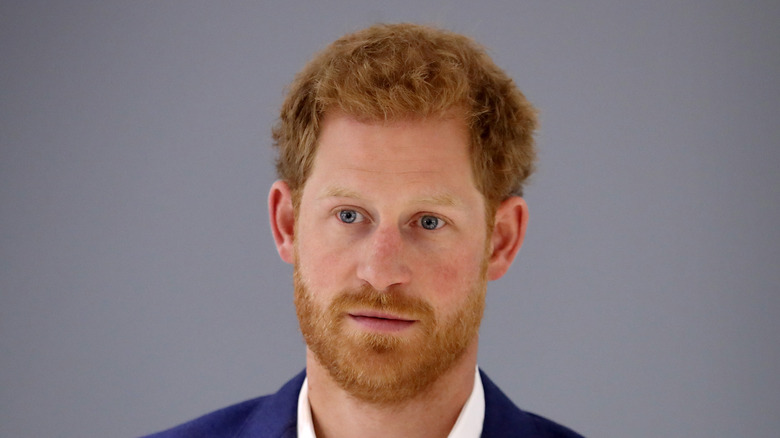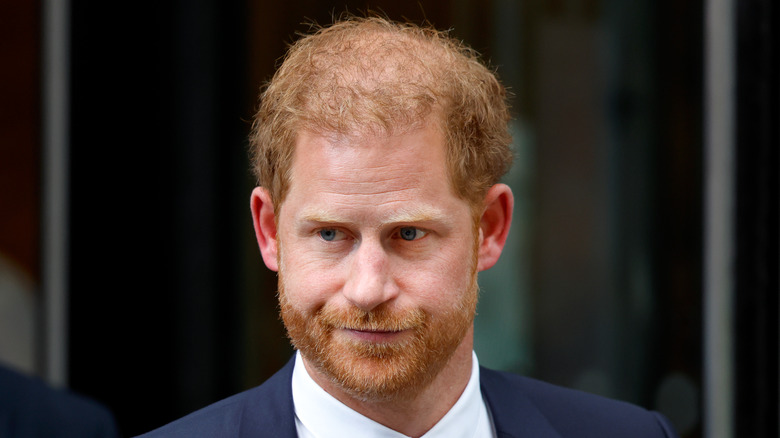Lawyer Tells Us How Prince Harry's Drug History Could Affect His Visa
No one is above the law, not even royals. Prince Harry is facing some serious legal issues surrounding his visa after he admitted to using drugs in his memoir, "Spare."
"Spare" got plenty of attention as a tell-all book on Harry's life, but it turns out he may have said too much. According to the Associated Press, the former royal admitted to taking cocaine, cannabis, and psychedelics in his life. The issue with him experimenting with drugs is that Harry obtained a visa to live in the U.S. after leaving the U.K. in 2020 and to do so, he had to answer questions regarding any drug use. Admitting to that kind of history on a visa application can cause issues, but so can lying about it. Knowing this, the conservative think tank The Heritage Foundation has requested that the Department of Homeland Security (DHS) release the royal's application, because they believe he either lied about his drug use or received special treatment from the agency.
A lawyer from the DHS responded to the foundation's claims, telling The Telegraph that Harry may have lied in his memoir about his drug use to sell more books. A judge has since demanded that the DHS fork over Harry's documents, and he will determine if they should be made public, per Newsweek.
We have yet to find out how Prince Harry's admission of drug use could affect his visa, but trial lawyer Neama Rahmani, a former federal prosecutor and president of West Coast Trial Lawyers in Los Angeles, talked to Nicki Swift about what could happen with the royal's visa.
Prince Harry could get off easy in visa debacle
There's a lot of conversation surrounding Prince Harry's visa drama, but the one thing we don't know, besides the information on his application, is what type of visa he actually has. Trial lawyer Neama Rahmani told Nicki Swift about the different types Harry may have applied for upon immigrating. "Prince Harry's visa type isn't public. It may be a diplomatic visa, but he is no longer an official representative of the British government," Rahmani explained. "It could be a normal work visa, O-1 extraordinary visa, a tourist visa, spouse visa, or EB-5." Regardless of the visa Harry has, every single one requires an application process, per Travel State Gov.
It's ultimately Prince Harry's visa application itself, not the type of visa, that can affect his future in the U.S. Rahmani told Nicki Swift, "Admitted drug use is usually enough to keep an immigrant out of the country." Based on his memoir, we know that Harry has taken drugs in the past. However, Rahmani explained how traditionally, if there aren't any past legal issues with drug use, then the U.S. might put it on the back burner. "Absent an arrest or conviction, the Department of Homeland Security doesn't aggressively enforce this provision and revoke Visas for people already in the United States."
In other words, it's possible Prince Harry could get off easy on his visa situation, but the high profile of his case could cause complications.
Lawyer explains how Harry can take action in visa issue
Prince Harry's visa crisis presents one of the biggest unanswered questions about him since leaving the royal family. The visa debacle is still developing, as the judge has yet to decide whether his application will be made public. Should Harry's application become public and should the DHS take action regarding his visa and his admitted drug history, there is still a possibility that the royal can fight back.
Lawyer Neama Rahmani explained exclusively to Nicki Swift how Harry could get a waiver to defend his visa. "If the DHS does act, Prince Harry may be able to get a waiver by arguing his drug use is in remission," he said. "Someone is considered in remission after a year of sobriety." To do this, Rahmani revealed that Harry must have a doctor "submit medical documentation" to prove he's in remission.
If Harry's complex visa situation does end up with him in court, Rahmani explained that his admittance to drug use in his memoir, "Spare," could be dismissed as evidence. "Prince Harry's admissions in his book that he used cocaine, mushrooms, or other drugs recreationally would normally be grounds for inadmissibility," Rahmani told us.



